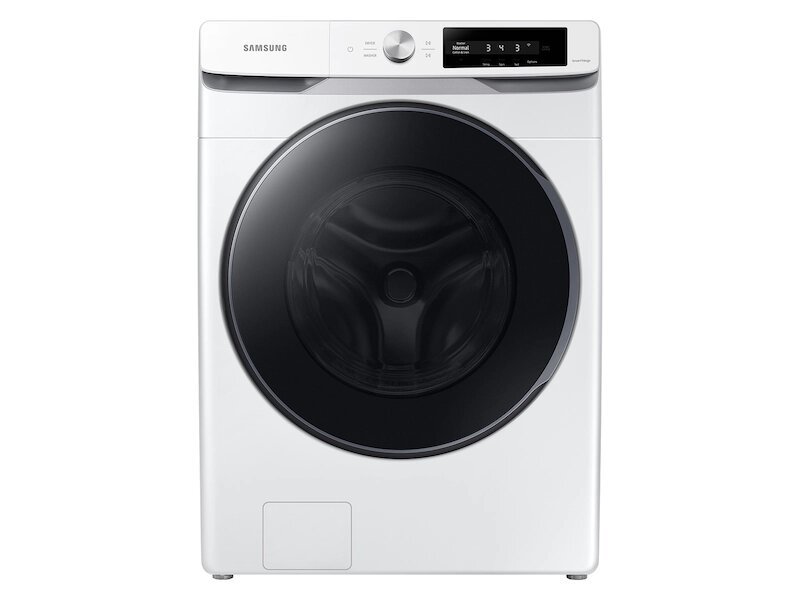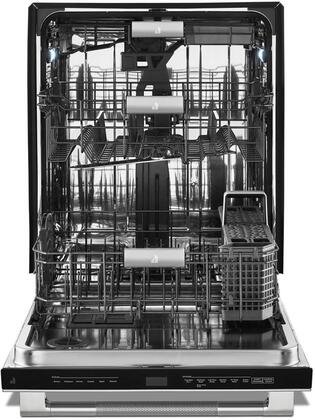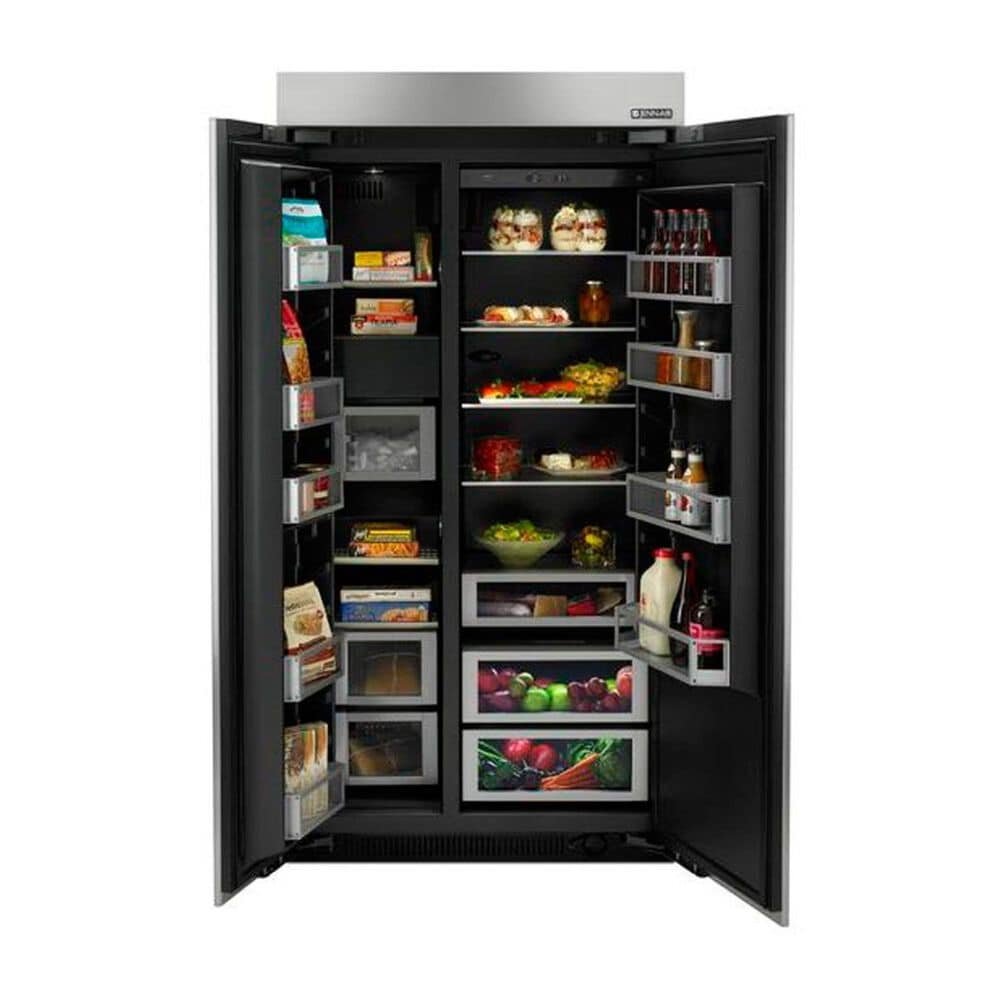What they are, how they work, and what the best are in 2022
What is the most energy-efficient washer? The one you do by hand! Yep, we're back at it again, looking at energy-efficient appliances. This time we're looking at washing machines. Will tell you about what makes a washer energy efficient, what the difference is between energy-efficient and high efficiency, what the best on the market is right now, and what you can do to make your current one more efficient.
We're happy to say that this article is more straightforward than our last one on ovens.
To start with, what is it that makes a washer energy efficient? According to Energy Star, in order for a brand to have the logo on their washer, it needs to meet two criteria. First off, it has to have a high Integrated Modified Energy Factor, and second, it has to have a low Integrated Water Factor. We know you're looking at us and going what the heck does that mean? An Integrated Modified Energy Factor or IMEF, is a measure of energy efficiency that considers the energy used by the washer during both the cycle and while on standby. An Integrated Water Factor or IWF, is a measure of the water efficiency in gallons of water consumed per cubic foot of capacity for the washer drum. The lower the IWF the more efficient the washer. So in order for a washer to get the energy star logo it has to use 25% less energy and at least 33% less water than what is currently standard on the market.
So then, what are the most efficient washers for 2022, according to Energy Star?
You have the best IWF, and that is the
LG WM9500H*A
Front load washer
Has a volume of 5.8 cu.ft
Annual Energy Use: 120 kWh/yr
Annual water use: 4588 gallons/yr
IMEF: 3.1
IWF 2.7
Price: $1,799.00
Then we looked at the best IMEF.
Samsung- WF45A64*A*
Front load washer
Has a volume of 4.5 cu.ft
Annual Energy Use: 93 kWh/yr
Annual water use: 3807 gallons/yr
IMEF: 3.1
IWF 2.9
Price: $949.00
Our third washer is the best in terms of annual energy use.
Frigidaire - FWFX22D4EW
Front load washer
Has a volume of 4.4 cu.ft
Annual Energy Use: 50 kWh/yr
Annual water use: 4154 gallons/yr
IMEF: 2.76
IWF 3.2
Price: $700.00
Keep in mind that this one does have a lower IMEF and a higher IWF than others on the list so far, but for the amount of energy it uses, it seems like a fair trade-off.
The fourth one we looked at has the best annual water usage.
Asko- W2084.W.W
Front load washer
Has a volume of 2.0 cu.ft
Annual Energy Use: 75 kWh/yr
Annual water use: 1728 gallons/yr
IMEF: 2.31
IWF 2.9
Price: $1499.00
We will note that if you look at the volume of the washer, that's the reason the annual water usage is so low. So it might be a good option if you're looking to take care of a family of two or if you're on your own. We wouldn't necessarily suggest it for a family of three or more, though.
Our final washer that we looked at is the direct opposite of the last one and has the largest volume.
Maytag- MVWB955F
Top load washer
Has a volume of 6.2 cu.ft
Annual Energy Use: 197 kWh/yr
Annual water use: 6735 gallons/yr
IMEF: 2.38
IWF 3.7
Price: $ 1170.00
Even with the IMEF and IWF being wildly different from any of the others on the list, we still have to point out this is still an energy star washer. We also want to point out that this one is no longer being sold by Maytag directly, but you are likely to find it on secondary sale sites still.
Now let's take a quick look at what is the difference between a high-efficiency washer and one with the energy star logo.
A machine with the energy star logo is a great place to start. They are at least 33% more efficient than what's on the market. However, a high-efficiency machine goes even further. Due to the way they're designed, they need even less water than those with the energy star logo. That's not a flaw of your standard washers but a design feature of the high-efficiency ones. They use a more concentrated detergent that reduces the suds and penetrates deeper into the fabric. That then requires less water to be used to rinse the clothes. And they also use less energy because they keep your clothes constantly moving during the washing cycle instead of using a central agitator. We wouldn't say that we're for or against high-efficiency machines? We'll repair all of them, and it really is based on what your household needs.
What if you can't replace your washer with one of these Energy Star wars? Is there anything that you can do to make your washer more efficient as it stands right now? The answer to that is a resounding yes.
Tip Number 1
To start with, maintain your machine. Just like cleaning the coils on your refrigerator or the ducts on your dryer, residue buildup on your washer will reduce its efficiency and make it work harder. To do this, you can have a professional come out, or you can do it on your own with recipes from around the web. Make sure to look at whether you have a high-efficiency machine or a standard washer before you do this.
Tip Number 2
Avoid the sanitary cycle. Unless it is truly necessary, say you got exposed to covid, heaven forbid, just don't use it. The amount of energy that goes into the sanitary cycle is unnecessary a large portion of the time.
Tip Number 3
If you're not already doing it, wash full loads. Although there are washers out there that allow you to wash just one item when you need it, it's better to wash a full load. Although we won't say it's the same for all washers, most washers will still use the same amount of energy and water for a partial load that they do for a full load. So you might as well get the most out of spending that money.
Tip Number 4
And for our final tip, wash in cold water. It uses less energy because you're not heating the water. It's kinder on your clothes. And it's just as effective as hot water washing if you're using the right detergent.
And that's that! Let us know in the comments below or over on our Facebook page, did you have any further questions?
If not, or if you're looking to get your current washer looked at, give us a call at ((214) 599-0055) or reach out on our contact page. We'll work with you to find a time that fits your schedule best. Whether you're in The Colony or McKinney, Appliance Rescue Service is here for you.
















